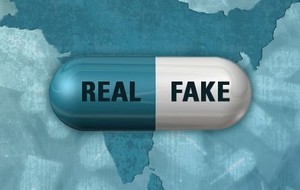Nigeria has ageing drug-manufacturing facilities and a problem with imports of fake drugs, according to Mr Olakunle Ekundayo, Group Managing Director, Drugfield Pharmaceuticals.
Nigeria needs to combat fake drugs and ageing facilities
Home/Pharma News
|
Posted 14/06/2013
 0
Post your comment
0
Post your comment

The Nigerian pharmaceutical market was estimated to be between US$600–740 million in 2009. Of this total, generics made up between US$266–418 million, over-the-counter drugs between US$296–121 million and brand-name medications between US$61–177.6 million.
Despite this buoyant market, however, drug manufacturers in the country are faced with several problems, including ageing facilities, high import duties and counterfeit products, as well as difficulty in meeting World Health Organization (WHO) prequalification programme criteria.
Most of the drug manufacturing facilities in Nigeria are very old. For example, Neimeth Pharmaceuticals took over a factory from Pfizer that was built in 1976. But even more recently built facilities, such as that of Emzor Pharmaceuticals, which started production in 1985, need to be upgraded due to the changing requirements for pharmaceuticals. This only adds to the companies’ problems of meeting WHO prequalification programme criteria.
The government has set up the Nigerian Pharmaceutical Development Fund (NPDF) to try to boost local production of medicines and to help companies meet current good manufacturing practice requirements. The only problem is that the fund does not help Nigerian pharmaceutical companies to be WHO pre-qualified.
Another problem is that fake copies of products that are manufactured by Nigerian pharmaceutical companies are being imported into Nigeria from China and India. The country has been battling this problem for three to four years already. The low disposable income of the population is fuelling the market for low cost fake products. And these products are often of substandard quality and may even not contain any active ingredient or could even be harmful.
Finally, some of the ingredients that are used for medicine manufacturing, including packaging materials that cannot be made in Nigeria, attract as much as 20% import duties. But if the company brings in the same materials as a finished product this attracts an import duty of only 10%. This is discouraging local firms from producing drugs in the country but rather encouraging them to import final products instead. This is a concern, as Nigeria already imports about 70–80% of the drugs it uses and only manufacturers about 30% locally.
Despite the problems, some Nigerian pharmaceutical companies, such as Evans, SWIPHA, CHI Pharmaceuticals, May and Baker, and Fidson Healthcare are in the process of upgrading and/or building new facilities in preparation to meet WHO prequalification programme requirements, which it is believed will also promote local production.
Related article
Death sentence for six Chinese drug fakers
Permission granted to reproduce for personal and non-commercial use only. All other reproduction, copy or reprinting of all or part of any ‘Content’ found on this website is strictly prohibited without the prior consent of the publisher. Contact the publisher to obtain permission before redistributing.
Copyright – Unless otherwise stated all contents of this website are © 2013 Pro Pharma Communications International. All Rights Reserved.
Source: Business Daily, Emzor Pharmaceuticals, Nigerian Tribune
Guidelines
US guidance to remove biosimilar comparative efficacy studies
New guidance for biologicals in Pakistan and Hong Kong’s independent drug regulatory authority
Policies & Legislation
EU accepts results from FDA GMP inspections for sites outside the US
WHO to remove animal tests and establish 17 reference standards for biologicals
Formycon signs new aflibercept biosimilar pacts and launches ranivisio in Europe

Home/Pharma News Posted 13/11/2025
Bio-Thera and Stada expand biosimilars alliance to include tocilizumab

Home/Pharma News Posted 20/10/2025
The best selling biotechnology drugs of 2008: the next biosimilars targets








Post your comment